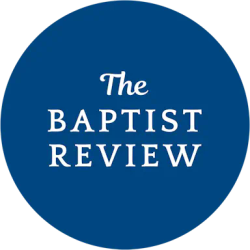Cooperation is on trial in the Southern Baptist Convention. In some ways, the proceedings are different and contemporary. In other ways, this is merely a current rehearsal of a generational prosecution. I believe this is a necessary reality. As much as we would like to set up the following generations for success, through both protection and provision, we cannot. Each generation must (and will) adjudicate the value and mechanisms of Baptist Great Commission cooperation for themselves. Even today, I believe we have reason for confidence in our shared mission.
Cooperation and autonomy are concomitant and complimentary doctrines of our faith. In one we confess that “each church operates under the Lordship of Christ through democratic process,” free from any form of ecclesiastical hierarchy, while in another we recognize that we “should cooperate with one another,” because “Christian unity in the New Testament sense is spiritual harmony and voluntary cooperation,” (BFM Article VI, XIV). These two cherished doctrines have not stood in contradiction to one another since the beginning of the Baptist movement in the early seventeenth century. Rather, they have worked together magnificently in all that God has accomplished through Baptist missional endeavor. The two doctrines have been tested, tried, and consequently reaffirmed and re-envisioned with every passing generation, and this was so not for a lack of controversy or complication, but for an abundance of confidence in the biblical mandate for, and the practical value of, voluntary inter-congregational Great Commission cooperation.
Today, with a messenger-approved and presidentially appointed Cooperation Committee, social media campaigns, multiplying affinity groups, and no shortage of suggested edits or revisions to our governing documents on the table, the court is convened. Because of our democratic processes, the messenger body is prosecutor, defender, jury, and judge. Either our cooperation will be what the messenger body wants it to be, or we will not cooperate at all. So, what, exactly, does the messenger body want? Arguments are being presented, evidence is being examined, and decisions are on the horizon.
In the meantime, I would like to state my own overwhelming confidence in Southern Baptist Great Commission cooperation. My confidence is not in our mechanism, in our pragmatic successes, or in our leading or loudest voices. Rather, I have confidence for our generation’s Great Commission cooperation for the reasons that follow.
1. I have confidence in the Bible.
Southern Baptists are unwaveringly committed to the inerrancy, infallibility, authority, and sufficiency of the Christian Scriptures. A generation before, some would not have had this same confidence. But today, I am convinced that we share this commitment. The disagreements we prosecute today are not akin to those of the 1970s-1990s. Much of what we debate today is the practical application (or implications) of shared, confessed biblical convictions. We are not debating whether we can trust the stated authorship of the Bible’s 66 books. We are not debating whether the Bible’s truth can be without error and simultaneously contain factual inaccuracies. We are not debating whether the miraculous accounts are embellishments or allegories for a preferred naturalistic reading. We are not debating whether Jesus was bodily resurrected from the dead. We believe these biblical truths.
I also believe that the Bible clearly and compellingly presents the doctrine of inter-congregational Great Commission cooperation. This doctrine comes to us from our Father in heaven and is good and healthy. It is an integral part of his divine plan to take the gospel to the ends of the earth. I also believe that Jesus was correct and trustworthy when he claimed that he would build his church and it would prevail against the gates of hell (Mt. 16:18), that the gospel will be proclaimed to the whole world and then the end will come (Mt. 24:14), and that every nation will be represented around the throne of God in heaven (Rev. 7:9). Our cooperation is toward an end already guaranteed, as long as we cooperate in concert with our Great Commissioner’s command and toward his stated ends. I have confidence in Southern Baptists because I have confidence in the Bible.
2. I have confidence in the Holy Spirit.
The Holy Spirit has baptized Jesus’s church with the presence and power of God. He continues to fill us and to pour out his presence among us when we call upon the Father with a pure heart and in accordance with his sovereign will. He utters prayers on our behalf we cannot understand. He gives us the mind of Christ. He walks alongside us. He convicts us. He encourages us. He educates us in the Scriptures. He pulls us together and gifts us, at the pleasure of the Father and the Son, with everything we need to be successful in our shared mission.
Additionally, as Southern Baptists have commonly confessed, the Holy Spirit “cultivates Christian character” (BFM, Article II.C.). Almost every time I open social media, I’m shocked and appalled by the lack of Christian character I see from some of our Southern Baptist brothers and sisters. My confidence is not in them, as it is not in myself. Rather, my confidence is in our confession that the Holy Spirit is doing the work of character cultivation. He is forming the spirits of those who love him. Cultivation is hard, dirty, and often lengthy work. To be honest, the work of character cultivation is interminable in all of us, until the day of our final glorification in Christ. Even the most frustrated and distastefully vocal Southern Baptist followers of Jesus are in the process of Holy Spirit directed character cultivation, just like I am. I have confidence in the Holy Spirit to do his work, his way, in his time, in such a manner that brings Christ the most glory and by extension accomplishes in and for us the most good.
3. I have confidence in the messenger body.
Historically, messengers to Southern Baptist Convention annual meetings have gotten things egregiously and embarrassingly wrong (slavery and abortion, to name only two). But over time, under the guidance of the Holy Spirit and with a shared commitment to the Bible and the mission, we have corrected the theological errors of our ways and have often apologized repeatedly for them. Our corrections and apologies do not excuse the errors of our fathers or of our organizational history, but by God’s grace we move forward together in the mission because even those we have often offended the most continue to see value in our Great Commission cooperation.
Over the last few years, I have often heard or read quips about “the platform” in Southern Baptist life. A wind of distrust blows through the emotions of messenger disappointment when one messenger or a group of messengers feel(s) unheard, misunderstood, underappreciated, or marginalized. However, the beauty of our democratic mechanism is that every person on “the platform” has been put there either by direct election of the messenger body or by appointment from someone who has been elected by the messenger body. And when the messenger body does not approve of its chosen leaders’ decisions, it can, and has, overturn(ed) those decisions from the floor. Sometimes this takes moments; sometimes, years. The “platform” is a representation of the Convention at large, and everyone on it has been entrusted to it by the messenger body itself. When messengers question the decisions of those in leadership, they have the right to make a compelling case for their judgments (and often do, I might add), and to sway the messenger body to examine the facts and vote their consciences.
Personally, I believe messengers to Southern Baptist convenings are coherent, competent, and spiritual enough to discern what they believe is correct and good and to cast their votes accordingly. To say that the messenger body “just goes along with the platform” or is unable to make good decisions in their brief deliberations is to underestimate and degrade the messengers’ soul competencies and personal intelligences. The messengers even have the ability to extend time for debate, close debate, or table motions and discussions. They know when they have heard enough and when they need more time, and they are in full control of those options. Call me naïve, but I suppose I have more confidence in our messengers than some.
That is not to say the messengers always get the issues or the votes right, as far as I am concerned. But it is to say that with time, by the grace of God, on the solid foundation of biblical truth, and together with the company of the Holy Spirit, the messengers usually come to a sound, biblical decision. Not all will agree with that decision, but for the sake of their shared mission they continue to cooperate for Great Commission advance. I may not have confidence in every messenger, in every decisive moment. But I have confidence in the messenger body at large, over time.
4. I have confidence in the veracity of our commitment to the Great Commission.
Baptists—Southern Baptists—voluntarily cooperate to advance the Great Commission. That’s what we do. “There is no salvation apart from personal faith in Jesus Christ as Lord,” and because of this shared, uncompromisable truth, we embrace our “duty and privilege . . . to make disciples of all nations,” and we engage wholeheartedly, together, in the “Missionary effort,” (BFM Article IV, XI). In 1845 at the constitutional convention of the Southern Baptist Convention, messengers adopted the 1814 Triennial Convention’s constitution unchanged, in toto. Therein, they stated their express purpose to be one of “organizing a plan for eliciting, combining, and directing the energies of the whole denomination in one sacred effort, for the propagation of the Gospel.” This same sentiment is expressed in the opening paragraph of our current constitution, still today.
We agree on primary doctrines and practices, and since 1925 we have held a consensus of that faith and practice among us in our Baptist Faith and Message. For their first eighty years Southern Baptists cooperated missionally without a unified confession of faith, and since 1925 we have revised that confession of faith twice (four if you count the amendment on the family in 1998 and the amendment of Article VI from the floor in 2023). What has not changed is why we confess this consensus of faith and practice: so that we can work together, with confidence, toward the advancement of our shared mission. The Great Commission is our mission. It’s what we do. I may not have unwavering confidence in all our governing and/or historical documents themselves, but I have confidence in the sincerity—the veracity—of our commitment to the Great Commission. Southern Baptists will cooperate because we must cooperate. Our time is too short, and our message is too urgent, for anything else.
I have no intention of (and, honestly, no taste for) reducing contemporary disagreements to easy solutions or strawman arguments. However, for the four reasons above I have confidence that Southern Baptists will rise to the opportunities and challenges of our generation and continue to advance the Great Commission together. After the final adjudications of our generation, I have confidence that the final page of our chapter will turn toward the same conclusion with which our opening chapter began 179 years ago. Ours is one sacred effort. Both autonomy and cooperation are necessary and good in this effort. These cherished doctrines work together, sharpening us and challenging us to steward our season well.
Sure, the court is convened. Cooperation is on trial. But let us not forget that the nations are calling. The gospel is compelling. The church is commissioned. The King is coming. So, as our 2024 South Carolina Baptist President Wes Church says, “Let’s Go… ‘Till All Have Heard.”


